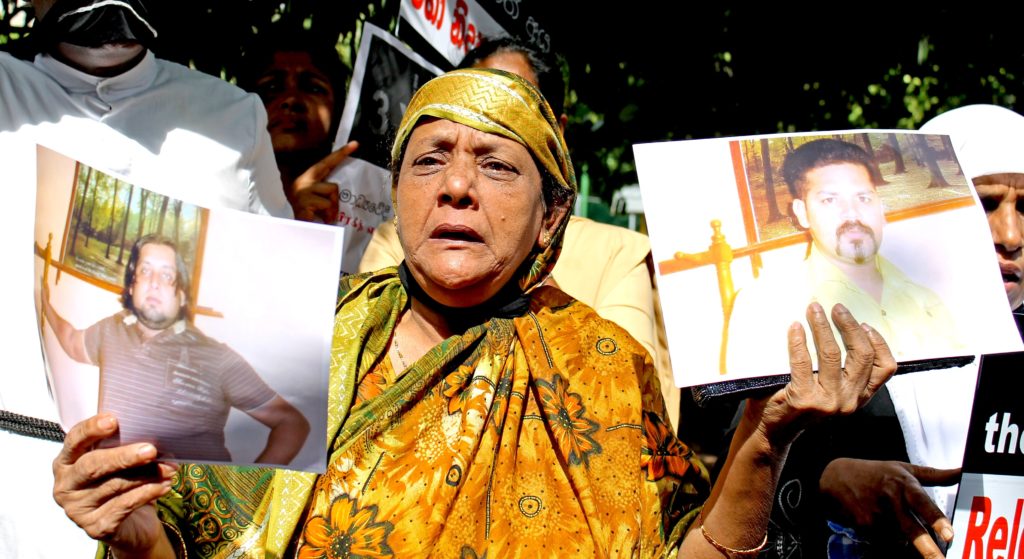Photo courtesy of Maatram
Sri Lanka’s history is deeply scarred by ethnic tensions and addressing these divisions is crucial for the nation’s future. The National People’s Power (NPP) and its leader, President Anura Kumara Dissanayake, have built their platform on the promise of system change and a break from the old order. To truly deliver on that vision, the NPP must recognize the concerns of minority communities, particularly the Tamil population, and show that they are committed to addressing these issues head on.
For decades, the Tamil community has faced systemic challenges, particularly in the aftermath of the civil war. Issues such as missing persons, reconciliation, political representation and power sharing have left lasting scars. The Tamil community has long felt excluded from national politics and their grievances have not been adequately addressed by successive governments. It is imperative that President Dissanayake and the NPP openly acknowledge these problems and commit to solving them.
Without an authentic, inclusive approach, the promise of system changes risks being viewed as hollow rhetoric. Addressing Tamil concerns isn’t just a political necessity but a moral imperative for the unity of the country.
One of the most painful legacies of Sri Lanka’s civil war is the issue of missing persons, many of whom are from the Tamil community. Thousands of families are still waiting for answers about the fate of their loved ones. President Dissanayake and the NPP must show that they are prepared to confront this issue by implementing a transparent process to trace missing persons. A credible legal framework should be established to investigate these disappearances with the involvement of international observers to ensure fairness and trust. This would be a monumental step toward restoring the confidence of grieving families in the state.
Reconciliation between ethnic communities has remained elusive. Previous efforts have fallen short, either due to lack of political will or fear of backlash from the majority. However, if President Dissanayake is serious about system change, he cannot afford to sidestep this crucial issue. A genuine political solution that includes power sharing mechanisms, especially for the Northern and Eastern provinces where the Tamil population is concentrated, must be part of the NPP’s agenda.
The NPP should also work to ensure that Tamil voices are included at all levels of governance, not as tokens but based on merit. Including more minorities in the decision making processes from local councils to national politics would signal a significant shift toward inclusivity. By empowering minorities in governance, the NPP can help heal long standing wounds and rebuild trust between the state and minority communities.
Reconciliation cannot simply be about rhetoric; it requires tangible, sustained actions. The NPP should propose a comprehensive reconciliation program that actively seeks to bridge divides between all ethnic communities. This could include dialogues, cultural exchanges and development projects that bring together people from different backgrounds. The state must also create mechanisms to ensure that the rights of all communities are protected under the law, regardless of ethnicity.
Another important step toward reconciliation would be to include more minorities in the police and security forces. By actively recruiting more minorities into these sectors, the NPP could improve relations between the minority communities and the state. Additionally, Tamil officers could serve as liaisons, helping to mediate and resolve conflicts between the government and local communities.
Finally, President Dissanayake and the NPP must not shy away from openly addressing these issues even if it risks backlash from the majority south. Fear of political consequences has long held back progress on minority rights in Sri Lanka. However, the NPP’s brand of politics is rooted in the promise of system change – a promise that must include the courage to speak openly about past injustices and the need for a more inclusive future.
The NPP must come forward with a clear and transparent policy to address minority grievances. This includes articulating a detailed plan for reconciliation, political inclusion and the legal protection of minority rights. Such a policy would not only demonstrate that the NPP understands the deep-seated problems facing the Tamil community but would also mark a decisive break from the politics of the past.
The journey toward a united Sri Lanka requires that all its citizens, regardless of ethnicity, feel heard, respected and included. President Dissanayake and the NPP have the opportunity to be agents of true change by showing they understand the grievances of the Tamil community and are willing to take bold steps to address them. By doing so, they can help create a Sri Lanka where unity is not imposed by force but achieved through justice, reconciliation and genuine inclusivity.
